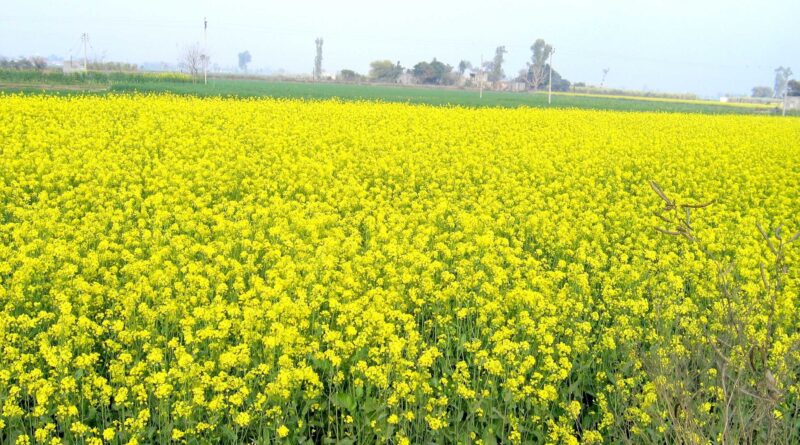MSP purchases of oilseeds, pulses sluggish
By Sandip Das
As the arrivals of rabi crop peak, the mandi prices of mustard and chana are firmly ruling around minimum support price (MSP) leading to sluggish procurement by government agencies.
Trade sources told FE that the market prices of mustard at Bharatpur, Rajasthan, the hub of the wholesale trade in oilseed variety was quoted at Rs 5974/quintal against the minimum support price (MSP) of Rs 5950/quintal for 2024-25 rabi season. Average mandi prices of key oilseed in major producing states is currently ruling at Rs 5828/quintal against Rs 5188/quintal prevailed a year ago.
“The mustard prices may rule around Rs 6000/quintal this season on account of robust demand which would discourage farmers to sell their produce at MSP to the government agencies,” Roop Singh, CEO, Uttan Mustard Producers Company, a farmer producer organization (FPO) based in Bharatpur, Rajasthan, told FE
Singh said the farmers would hold onto their commodities for next few months for better price realisation as in the last two years because of cheaper imports, market prices of mustard were ruling 10% to 15% below the MSP.
Similarly in case of chana, which has a share of 50% in India’s pulses output, average market prices are ruling at Rs 5705/quintal against the MSP of Rs 5650/quintal despite a robust rabi crop prospects.
Under the price support scheme (PSS) of the agriculture ministry, the government agencies – Nafed and NCCF have purchased only 0.31 million tonne (MT) and only 16,670 tonne of mustard and chana so far against the sanctioned volume of 2.82 MT and 2.79 MT respectively for 2024-25 season for the key producing states including Haryana, Madhya Pradesh, Rajasthan, Uttar Pradesh, Gujarat and Assam
For mustard, while trade had projected a production of 11.52 MT in 2024-25 season while the agriculture ministry has estimated the output of oilseed variety at Rs 12.87 MT.
In the 2023-24 season, the government agencies had purchased 1.2 MT of mustard from the farmers in Haryana, Madhya Pradesh, Rajasthan and Uttar Pradesh.
“While chana prices are ruling above MSP, mustard is close the remunerative prices announced by the government which is why the procurement has been poor this season,” an official said adding that if prices fall below MSP by Rs 300/quintal or less, farmers would not like to bring their commodities for procurement by the government agencies.
Agriculture minister Shivraj Singh Chouhan had stated earlier that the government agencies would buy oilseeds and pulses at the MSP for providing remunerative prices to farmers.
PSS, a component of PM-AASHA is implemented when the market prices of notified pulses and oilseeds and copra fall below the MSP during peak harvesting period to provide the remunerative price to the farmers.
To boost domestic production through providing incentives to the farmers and reduce the dependence on import, the existing procurement ceiling of 25% on tur, urad and masur under PSS had been lifted for 2023-24 and 2024-25 seasons.
India imports 15% to 18% and 58% of its annual pulses and edible oil consumption respectively.
This article has been republished from The Financial Express.

